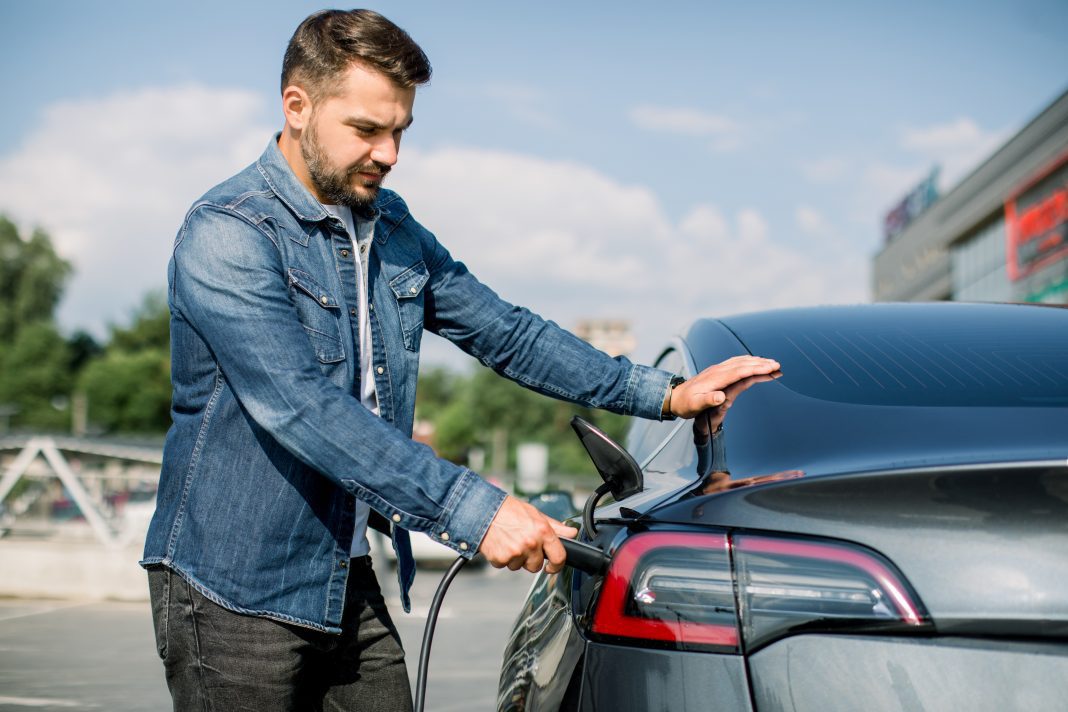The Build Back Better bill contains billions of dollars earmarked for the transportation industry, and one of the most contentious components has to do with EV tax credits. The proposed bill, if enacted as it currently reads, would offer an extra $4,500 in tax credits for union-built EVs plus another $500 for vehicles containing battery packs manufactured in the US. That’s in addition to the $7,500 that all-electric models are eligible for.
Senator Joe Manchin has slammed the provision in the bill that gives additional tax credits to vehicles manufactured in a union facility, calling it “not American.” In an interview with Automotive News, Manchin said, “When I heard about this, what they were putting in the bill, I went right to the sponsor (Stabenow) and I said, ‘This is wrong. This can’t happen. It’s not who we are as a country. It’s not how we built this country, and the product should speak for itself.'”
Both House Representative Dan Kildee and Senator Debbie Stabenow, who has organized the provision, defended the clause giving more tax credits for union-built EVs. Kildee said in a statement, “When we spend American tax dollars, we should invest in American jobs that pay industry-leading wages and benefits and ensure the strongest worker protections.”
How it affects auto retail
Widespread adoption of new electric vehicles is the goal with the intention of lowering emissions and reducing the American dependence on oil. Should the provision make its way into the approved Build Back Better bill, it could have some immediate impacts on auto retail.
| Related: Nearly one-third of car shoppers are checking out EVs |
All EVs eligible
 According to the provision, the 200,000-unit cap on EVs sold would be lifted so all EV buyers could capitalize on some level of incentives. The current $7,500 tax rebate would once again be available to Tesla buyers as well as the Chevy Bolt EV buyers that have sold more than that capped limit. That’s a welcome bit of news for buyers of the most popular electric cars in the world right now.
According to the provision, the 200,000-unit cap on EVs sold would be lifted so all EV buyers could capitalize on some level of incentives. The current $7,500 tax rebate would once again be available to Tesla buyers as well as the Chevy Bolt EV buyers that have sold more than that capped limit. That’s a welcome bit of news for buyers of the most popular electric cars in the world right now.
Non-union EVs get less
The Detroit Three stand to benefit the most on the tax credits, which is the issue that Sen. Manchin has. These unionized plants would have up to $12,500 in eligible tax credits per vehicle, effectively slashing the price on models like the Bolt EV by one-third of the MSRP.
But Tesla, arguably the leader in electrification, would max out at $8,000 in tax credits per vehicle if the batteries are manufactured on U.S. soil. The same would apply to Rivian models and other non-unionized shops or those outside the U.S.
Tax credits are refundable
The current $7,500 tax credit is a non-refundable and non-transferable credit. If the buyer doesn’t have the space in their taxable income to offset $7,500 in credits, they lose out on the portion that can’t be claimed that year.
The proposed credit is different. It’s a refundable tax credit, meaning that the whole value would be reimbursed regardless of the individual’s personal tax profile.
Moreover, the credits are transferable. That leaves it open for dealers to provide point-of-sale discounts that lower the selling price as much as $12,500 with the buyer signing over the tax credit to the dealership. If this is implemented, it could be a gamechanger for EV affordability. Adoption would be almost certain to explode.
If the bill passes as written, American, union-built EVs will be the most attractive vehicles to purchase for a swath of car buyers. Much painstaking arguing continues, though, and the final bill could be significantly different than the proposal seen today.
Did you enjoy this article from Jason Unrau? Read other articles on CBT News here. Please share your thoughts, comments, or questions regarding this topic by submitting a letter to the editor here, or connect with us at newsroom@cbtnews.com.
Be sure to follow us on Facebook and Twitter to stay up to date or catch-up on all of our podcasts on demand.
While you’re here, don’t forget to subscribe to our email newsletter for all the latest auto industry news from CBT News.










